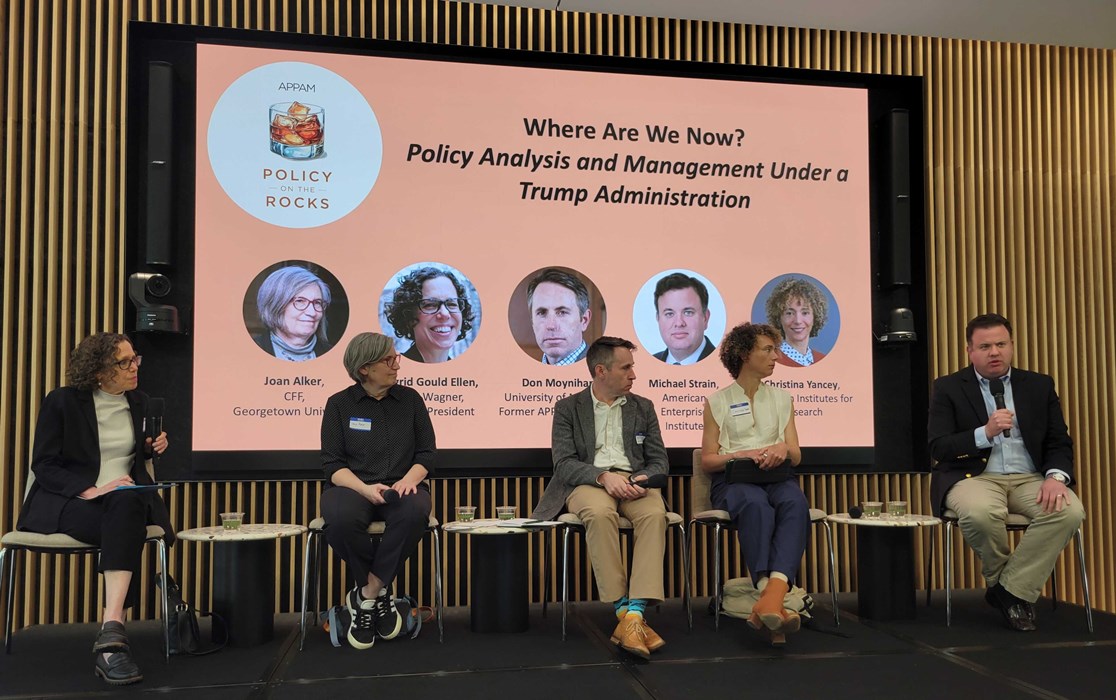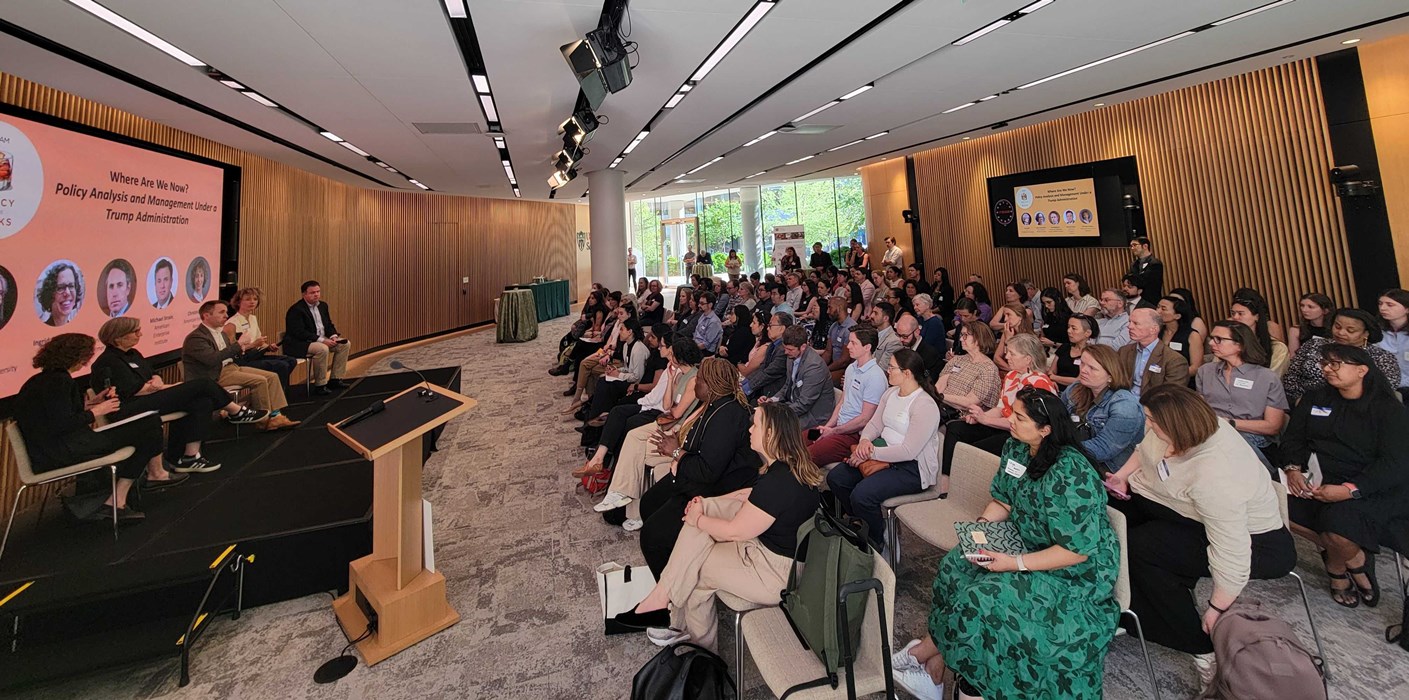APPAM recently held our inaugural Policy on the Rocks event, where a panel of leading scholars offered thoughts on topics at the forefront of researchers’ minds. Titled Where Are We Now? Policy Analysis and Management Under a Trump Administration, the group included
Joan Alker (Georgetown University),
Don Moynihan (University of Michigan),
Michael Strain (American Enterprise Institute), and
Christina Yancey (American Institutes on Research). APPAM President
Ingrid Gould Ellen (New York University) led the discussion, which focused on what’s happened so far and the effects on evidence-based policymaking.
The panel, which served as a follow-up to the plenary at APPAM’s 2024 Fall Research Conference, kicked off with a high-level view of the Trump administration’s actions and their effects on policy research. As Ingrid handed the mic to Don, he painted a stark picture of what has occurred in just over a hundred days: thousands of federal researchers laid off, millions of dollars in research grants cancelled, and Department of Government Efficiency (DOGE) employees embedded across government and thrust into policy-making roles. While the panelists didn’t dispute that some reforms to the country’s civil service and research functions were necessary, they saw DOGE as operating with a sledgehammer rather than a scalpel. Michael characterized the department’s efforts as driven by a “lack of understanding of the nature of the problem,” pointing out the irony of how its controversial operating methods may have actually set back its own cause of increasing government efficiency.

Turning to the effects of these actions on the nation’s research ecosystem, the panelists offered perspectives ranging from sunny to pessimistic. Although they agreed that many of the recent changes could eventually be rolled back by Congress, as Ingrid explained, “So much of the research that all of us do as a community are long-term projects,” making sudden cuts and grant cancellations all that more devastating. Don underlined this point: “Research is a lot like government capacity. If you rip the muscle out, it doesn’t just come back the next day.”
At the same time, the speakers were careful not to dismiss this moment as a chance to shore up longstanding issues in the ways the field collects and uses statistics—such as flagging response rates and likely undercounting. “It’s hard to say there’s a great opportunity in this today” Christina said, “but that does need to emerge.” Indeed, while certain trends were exacerbated by the arrival of DOGE and the second Trump administration, many of these challenges aren’t brand new to researchers. “The fundamental question here is: Does evidence still influence policymaking? This is not a new conundrum that we face,” Joan quipped.

How then can the research community move forward? Although the value of research may seem evident to the panel and Policy on the Rocks guests, Michael explained, “it really isn’t obvious to members of Congress.” In their appeals, he urged researchers to lead with practical uses of data for businesses rather than goals around getting published or receiving tenure. Still, despite the measured optimism and plans for productive next steps, the panelists said the currently unfolding impacts of this unprecedented time can’t be ignored. Commenting on the rapid-fire changes to Medicaid being put forth by the House of Representatives—which had not yet been completely evaluated by researchers at the Congressional Budget Office—Joan noted, “I’ve been around this town a long time and this is really extraordinary. The impact on people’s lives is alarming.”
Join us for our next Policy on the Rocks event on Tuesday, September 9th at the Texas A&M Bush School in downtown Washington, D.C., where we’ll be focusing on the role of A.I. in research and public policy. Stay tuned for the RSVP. See you there!